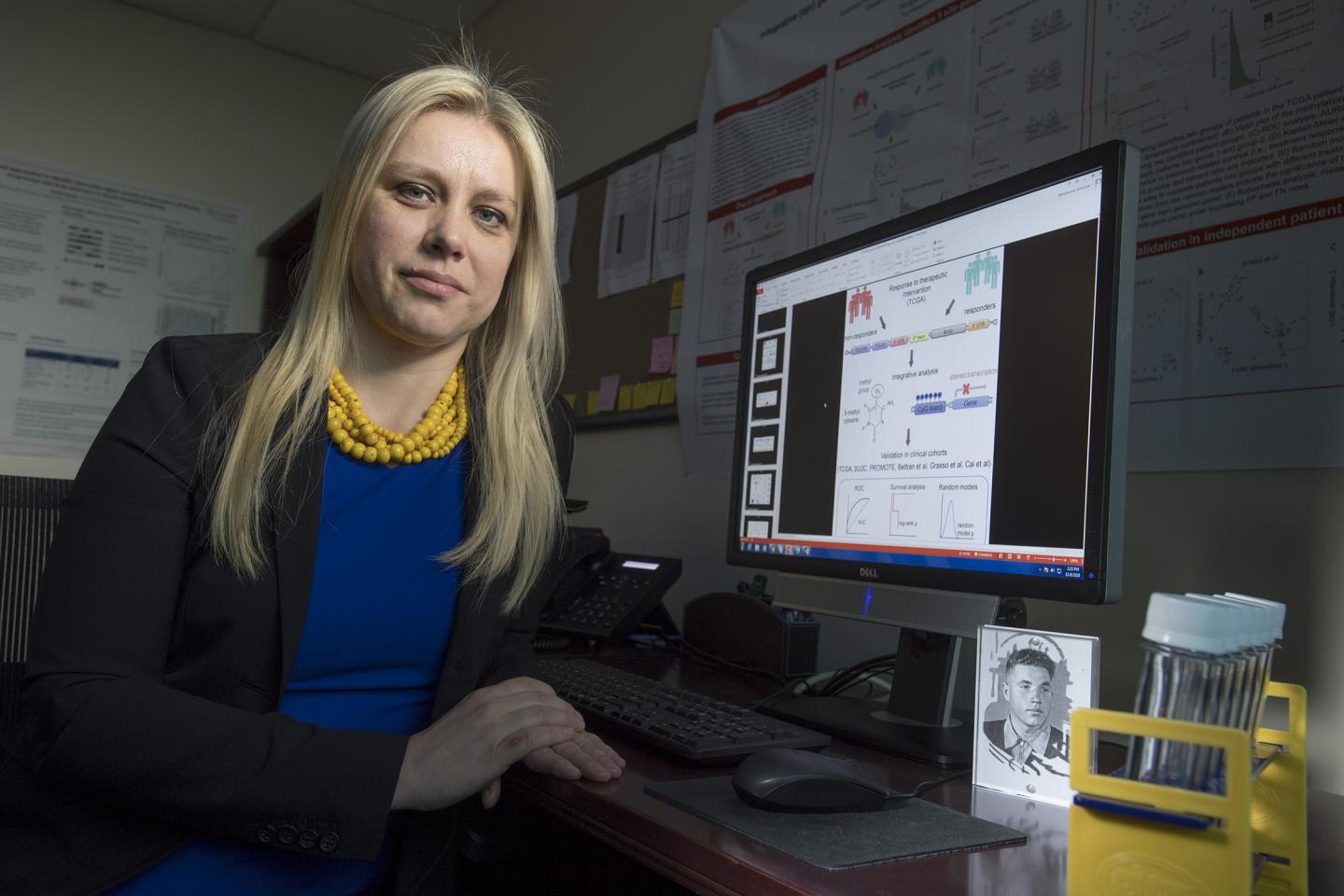Gene provides valuable information for early detection and treatment of cancer

Credit: Nick Romanenko
A Rutgers study has found that a specific gene in cancerous prostate tumors indicates when patients are at high-risk for the cancer to spread, suggesting that targeting this gene can help patients live longer.
The study, which was published in the journal Nature Communications, identified the NSD2 gene through a computer algorithm developed to determine which cancer genes that spread in a mouse model were most relevant to humans. The researchers were able to turn off the gene in the mice tumor cells, which significantly decreased the cancer’s spread.
“Currently, when a patient is diagnosed with prostate cancer, physicians can determine how advanced a tumor is but not whether the patients’ cancer will spread,” said lead author Antonina Mitrofanova, an assistant professor at Rutgers School of Health Professions and a research member of Rutgers Cancer Institute of New Jersey. “If we can determine whether a patient’s cancer is likely to spread at the time of diagnosis, we can start them on a targeted treatment plan as soon as possible to decrease the likelihood of their cancer spreading.”
Mitrofanova and collaborators are researching a potential drug to target NSD2, but she encourages doctors to begin incorporating NSD2 screening so they can start high-risk patients on anti-metastatic treatment as soon as possible.
While the algorithm used in the study focused on prostate cancer, Mitrofanova said it can be applied more broadly to study other cancers to better understand what findings can be translated to people.
According to the American Cancer Society, prostate cancer is the second most common cancer in American men and the second leading cause of cancer deaths.
###
Media Contact
Caitlin Coyle
[email protected]
848-445-1955
Original Source
https:/
Related Journal Article
http://dx.




